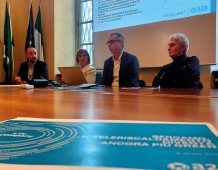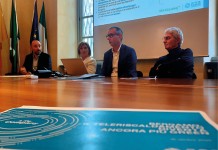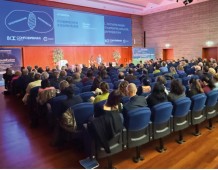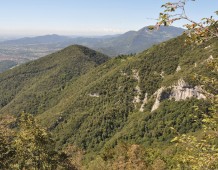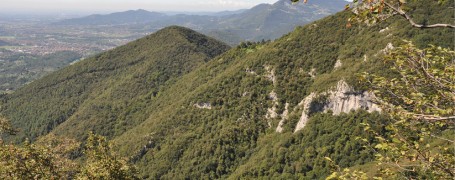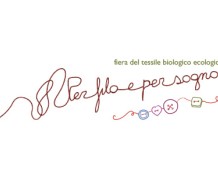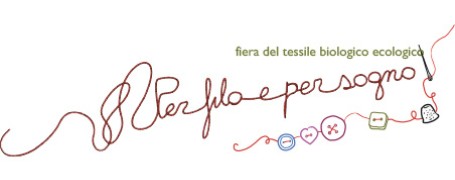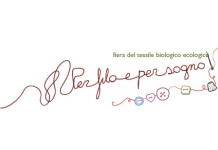Il documentario cinese di Liang Zhao vince il Green Drop Award e trasforma in ruvida poesia lo sviluppo insostenibile della Cina
Nel corso della 72a Mostra del Cinema di Venezia si è tenuto il “Green Day Venice - How is the film industry taking on climate change?”, un’intera giornata dedicata ai temi della sostenibilità nell’industria cinematografica.
Organizzata da Connect4Climate, l’iniziativa di cooperazione globale dedicata alla comunicazione sui cambiamenti climatici è stata promossa da World Bank Group e da Green Cross Italia, organizzatore del premio Green Drop Award.
Lo scorso 11 settembre il riconoscimento, collaterale alla Mostra, per il miglior interprete delle tematiche ambientali è andato al film Behemoth (Beixi Moshuo) del cinese Liang Zhao.
Un documentario di denuncia sullo sviluppo insostenibile della Cina e delle società industrializzate che, secondo la giuria presieduta da Remo Girone, rappresenta «gli uomini, le donne, l’ambiente e la natura come sacrificio, in nome di un progresso che, con un colpo di scena finale, si rivela inesistente». Il film racconta l’inferno nelle miniere di carbone della Mongolia, dove i materiali estratti servono per costruire “città fantasma” a causa dell’esplosione del settore immobiliare creato dallo schizofrenico sviluppo cinese.
I gironi danteschi in cui sono intrappolati uomini e donne che lavorano giorno e notte senza sosta evidenziano la follia del comportamento umano: «In Behemoth mi sono ispirato a Dante che attraversa in sogno l’Inferno, il Purgatorio e il Paradiso -ha spiegato il regista- ho descritto un’enorme catena industriale, in cui i colori rosso, grigio e blu rappresentano rispettivamente i tre regni danteschi. Attraverso lo sguardo contemplativo del film, analizzo le condizioni di vita dei lavoratori e l’insensato sviluppo urbano. È la mia meditazione critica sulla civiltà moderna, in cui si accumula ricchezza mentre l’uomo perisce».
Zhao Liang cita Zabriskie Point di Michelangelo Antonioni e osa panoramiche da paesaggio western che scolorano nelle colline grigio-blu tipiche delle antiche pitture cinesi.
L’urgenza di denuncia si coglie nella splendida metafora visiva dello specchio, presente nel film, in cui sono riflesse e amplificate le speranze e le sofferenze umane. Un documentario d’autore che è riuscito a rendere poesia un messaggio che invita alla mobilitazione affinché, come ha ben commentato Marco Gisotti, direttore del Green Drop Award, «il lavoro e la produzione industriale non siano il fine ma il mezzo».
Alice Motti
The “Leone verde” of Venice Film Festival goes to Behemoth.
The Chinese documentary by Liang Zhao wins the Green Drop Award and transforms the unsustainable development of China into poetry
During the 72nd Venice Film Festival the “Green Day Venice – How is the film industry taking on climate change?” was held. It was an entire day dedicated to the themes of sustainability in cinema industry. Organised by Connect4Climate, the initiative of global cooperation dedicated to the communication on climate changes was promoted by World Bank Group and Green Cross Italia, organiser of the Green Drop Award.
Last 11 September the recognition for the environmental themes best interpreter was given to the film Behemoth (Beixi Moshuo) by the Chinese Liang Zhao.
A documentary showing the unsustainable development of China and industrialised societies that, according to the jury presided by Remo Girone, represents «men, women, environment, and nature as sacrificed, in the name of a progress that, with a final twist, turns out to be inexistent».
The film narrates the hell of the coal mines of Mongolia, where the extracted materials are used to build “ghost towns” due to the boom of the real estate sector created by the frantic Chinese development.
Dante’s circles where men and women working restlessly day and night are trapped, evidence the madness of human behaviour: «In Behemoth I was inspired by Dante who dreams to go through Hell, Purgatory, and Paradise -explained the director- I have described a huge industrial chain, where red, grey, and blue represent respectively Dante’s three realms. Through the contemplative look of the film, I have analysed the conditions of life of the workers and nonsensical urban development. It is my critical reflection on modern civilisation, where wealth is accumulated while man dies».
Zhao Liang mentions Zabriskie Point by Michelangelo Antonioni and attempts panning recalling western films landscapes that fade in the grey-blue hills, typical of the ancient Chinese paintings.
The urgency of reporting is shown in the magnificent visual metaphor at the mirror, present in the film, where our hopes and distress are reflected and amplified.
An “artistic” documentary that was able to transform a message, inviting to mobilisation, into poetry in order to make, as Marco Gisotti director of the Green Drop Award commented, «work and industrial production become the means and not the objective».
Traduzione a opera di ViceVersaGroup







